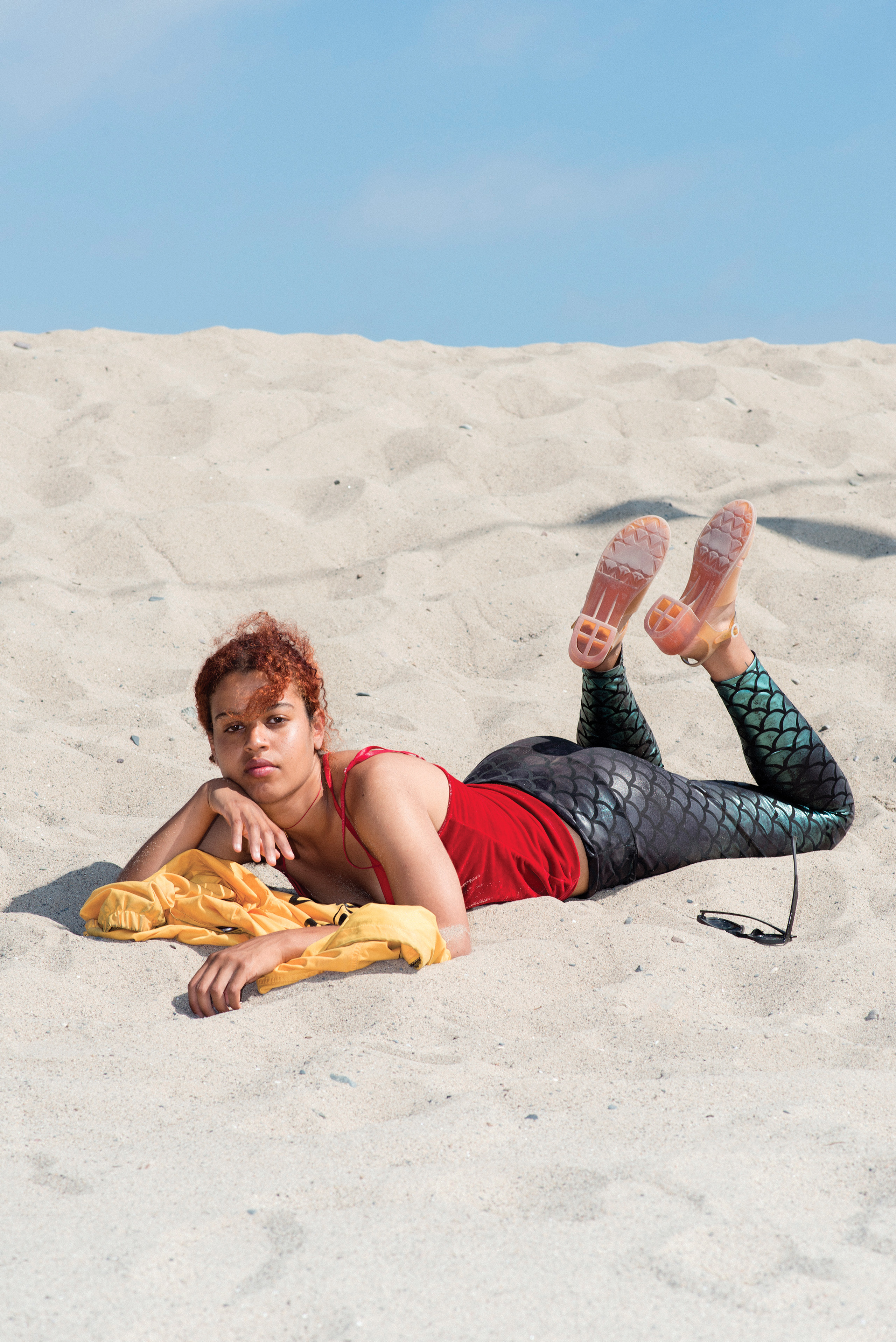Moochlan does seem like a genuinely sweet, intelligent person. And I get the sense that at least some of her unwillingness to share the background details of her life, to discuss her musical tastes and longer-term aspirations in any detail, is to do with the fear of putting herself out there. Early on in our conversation, she hints that she is apprehensive about what releasing a record might do to her personal life. She tells me that signing with Merge “was kind of scary,” and that she was particularly concerned about the attention. Opening up a little she admits, “I was like, oh my gosh! How do I deal with, just, like, that drastic movement? But at the end of the day I just want my music to be available to everyone. And that’s what Merge was offering me.”
I’ve interviewed lots of artists who find the promotion process difficult, and I understand. Media exposure can feel intrusive, but it is there to create an interest in your work – and, if you’re going to consent to give interviews, surely you understand that you have to share your opinions, engage with the questions, or tell at least some compelling anecdotes (they don’t even have to be true!) that might spark a reader’s interest in your work. And Sneaks’ album is of interest to you. “You’ve written this catchy, edgy album!” I want to shout at her. “You’re a witty young woman with ideas! Just bloody help me tell people about it!”
But she doesn’t want to. She’s adopted a non-disclosure tactic and she’s sticking with it. “I’m not paying attention to what’s being written about it,” she shrugs, when I ask her how she’d like to see her work discussed, what she’d like potential fans to know about her music. “I just don’t think it’s that important. That’s not my job. People can write about it, they can try to sell it, but I’m just gonna do me.”
It’s a bizarre statement to make to someone who is literally about to write a feature on your work. Although, it is honest.
“Can you tell me about the progress of the new album?” I ask. “How does what you’re doing now differ from what you’ve done with ‘Gymnastics’?”
“I’m really excited,” she says, “because there’s been a lot that’s happened over the past three years that I’ll be able to shed light on.”
“Anything in particular?”
“Erm…”
There a long silence.
“Just like,” she pauses, as if even this is an unwarranted invasion, “transitional things. Relationships. Environment. Those kind of things.”
“So you grew up in the suburbs of D.C, tell me a bit about that.”
“It was pretty boring.”
“Were you making music growing up, or just playing guitar for fun?”
“Playing guitar for fun.”
“Does your father still have anything to do with your musical career?”
She doesn’t answer.
“…or is he more, sort of, a source of guidance now?”
“He’s a source of guidance. In many ways.”
“And are there any other important figures who are supporting you in any way at all?”
“Definitely. There are a lot of people behind the scenes.”
“Anyone you’d like to mention?”
“No.”
“Right. Ok.”
“I have a great group of friends.”
“And the name Sneaks…” I’m getting desperate now.
“It’s just a word that I liked.”
We continue on in this vein for some time, with all my prepared questions stone-walled, and no real conversation to refer back to. I’m just throwing out whatever comes to mind, hoping something will spark her interest. But Moochlan’s becoming distracted – we’re barely twenty minutes into the interview and it’s clear that she’s done. “I should go soon,” she tells me, gesturing at the space behind her, which it turns out is the retreat’s dining hall, the only place with wifi; its huge windows look out over those lush hills.
“Hang on,” I say, “Can you just hang on a few minutes? I just have a couple more questions.”
But Eva Moochlan is definitely over the interview. There is a moment of silence as she considers her options, and then a familiar click emitted from the keyboard at her end. The call is over. Sneaks has retreated.
